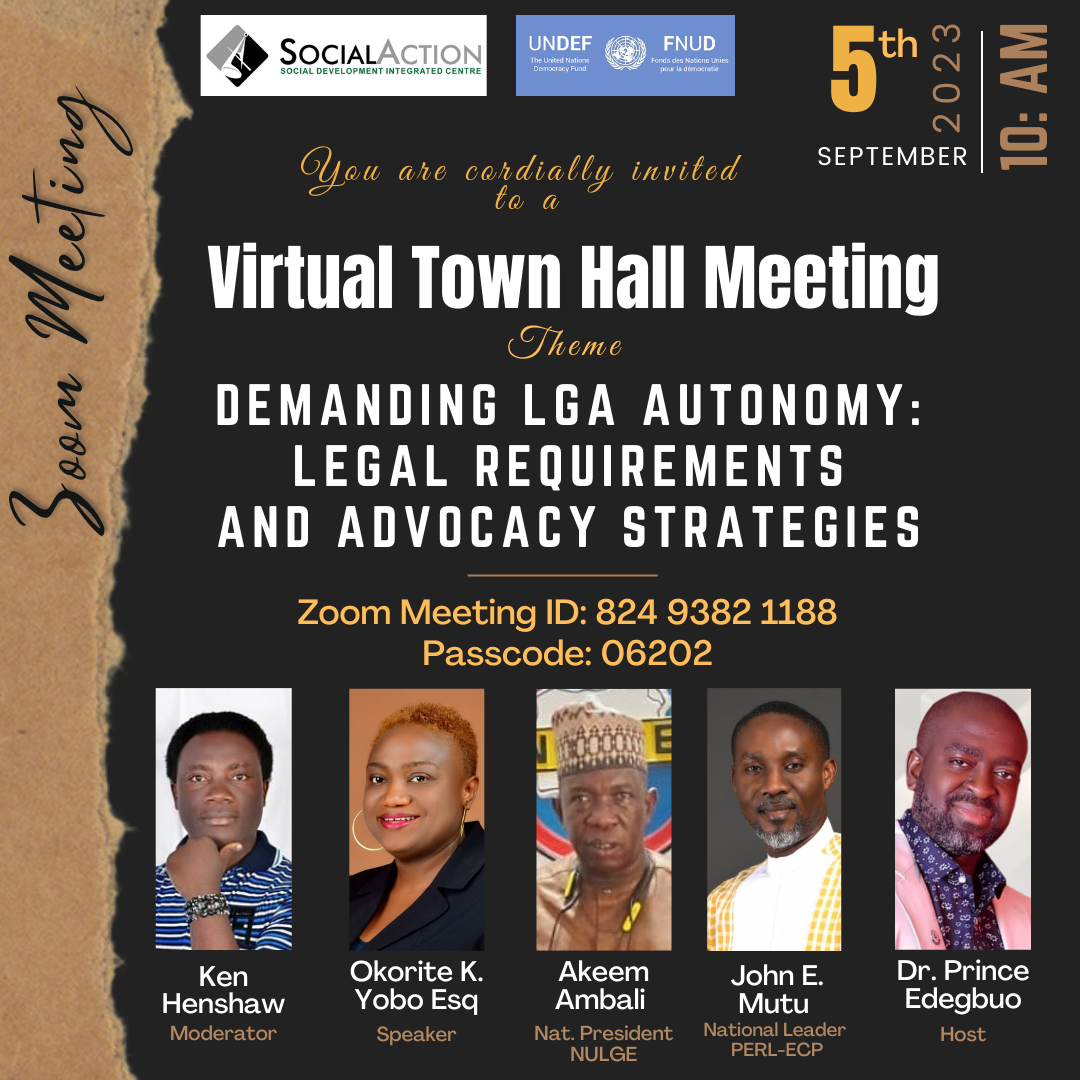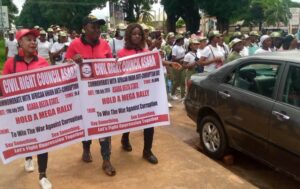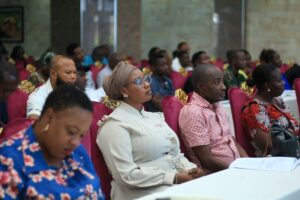Legal Requirements and Strategies to Achieving Local Government Autonomy in Nigeria
The demand for local government autonomy is a necessity as it is the bedrock of grassroots development. For the past two years, Social Action with the support from UNDEF has carried out various advocacy for this purpose. Interestingly, some states in the country have yielded to this call by supporting and voting for legislation to give administrative and fiscal autonomy to the local governments through their respective states of the assembly during the attempt by the 9th Assembly to obtain 25 percent consent from the National and the state houses of assembly to amend the constitution. However, some states are yet to embrace this progressive concept and have continued to embrace the abysmal idea that the autonomy of the local government is not a pressing issue.
Still advocating for a change, on the 5th of September 2023, a virtual town hall meeting with the theme “Demanding Local Government Autonomy: Legal requirements & Advocacy Strategies” was held to discuss further strategies that could employed to achieve local government autonomy especially as there is a new government in power. The Moderator, Ken Henshaw the Executive Director of We The People, asserted that despite Nigeria operating a three distinctive tier governmental system, only two are functional and the Local Government is not functional despite the potential of this tier of government to drive development.
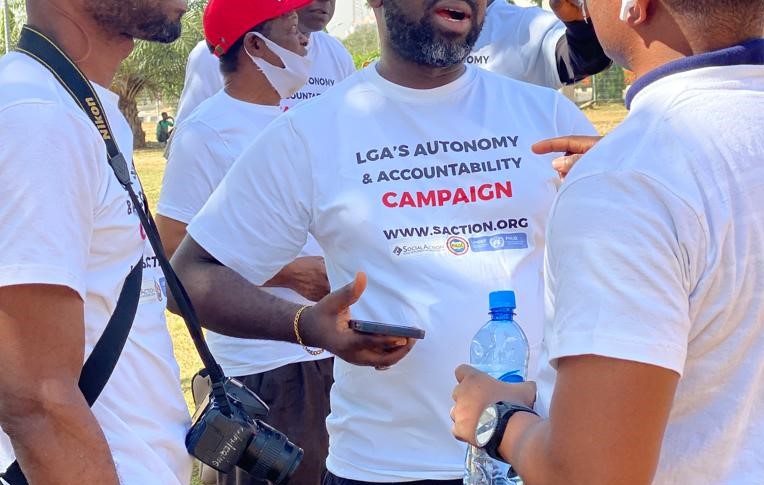
Speaking during the town hall meeting, Comrade John E. Mutu the National Leader of PERL-ECL, one of the speakers, described the LG as a place of service delivery. However, he stated that the 1999 constitution puts the LG at the mercy of the state government through the creation of the Joint Account Committee where all funds are paid to the state account and disbursed to the LG and in most cases diverted to other projects. This practice has crippled the LG as they cannot perform their statutory functions. While calling for the amendment of the constitution, he opined that until the Local Government is able to perform its function, good governance will continue to elude Nigeria. It is imperative to know that Basic health, sanitation, and provision of water are within the purview of the local government, but they have not been able to deliver on it because of the way funds are being handled by the state governors. He noted that the fight for the autonomy of the local government is not exclusively a Labour or NULGE issue but the collective responsibility of all because if it is achieved, it would be for the benefit of all.
Delving more into the discussion from the angle of the law, Barrister Okoritie Yobo stated some constitutional roles of the Local Government and how the allocations should be disbursed. She revealed that 10 percent of the internally generated funds of the state are supposed to be shared among local governments by the state government, besides the federal allocation as mandated by the constitution. In ten years (2008 – 2018) N14.7 trillion was disbursed to the 774 local governments in Nigeria but were mainly mismanaged by the state governments. She urged the civil society to adopt innovative strategies and continue to push until a positive response is obtained and these strategies must take into cognizance our current political and constitutional realities. According to her one pertinent question to ask is, Has the position of the State governors who are anti-local government autonomy changed? Will they be interested in rescuing the local government? She noted the present state of affairs is orchestrated by the state governors, supported by legislators and carried out by their foot soldiers and advocated for lobbying in churches, mosques and other worship centres. Massage egos, appeal and use the new traditional media effectively to keep these issues on the front burner. She finally suggested the amendment of the constitution still remains the permanent solution.
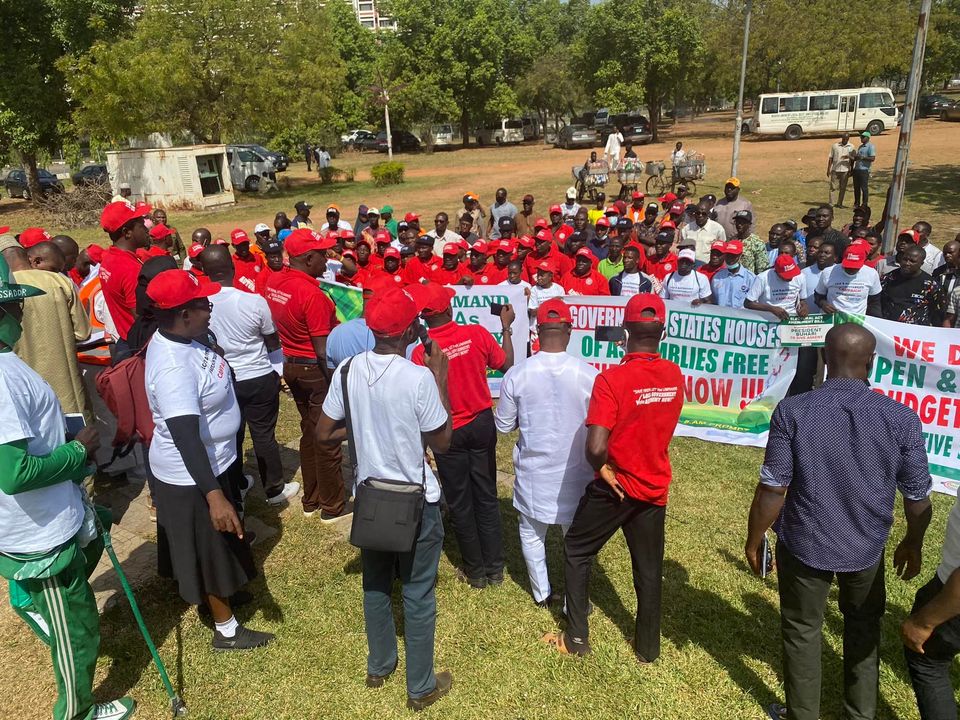
Akim Ambali the National Chairman National Union of Local Government Employees, NULGE, discoursed that the hold of the state governors on Local Government is borne out of greed and lack of concern for democratic laws and compliance. The governors have leveraged the passivity of the citizens, who are supposed to lead the campaign for grassroot development, to continue to perpetuate this anomy on the local government authority. The local government, he argued, is supposed to be independent as the humongous fund allocated to it is being pilfered and stolen hence the blockage of the passage of the bill for Local Government Autonomy by state governors. The people should stand up and mobilize for, not only the autonomy but also the publication of monthly allocation to the local government. He charged the civil society, community groups and other pressure groups pushing for and supporting the institutionalization of local government autonomy not to be discouraged.
Local councils are what we operate says Bonny Akaeze who also made valid suggestions. Comrade Bonny Akaeze advocated for the abolition of the state electoral commission which he claims has been an instrument through which the state governors have used to manipulate their stooges into the helms of affairs of the local government. If this is not addressed, according to Akaeze, the fiscal autonomy of the local government will be a waste and of no positive effect. If the responsibility of conducting the election is handled by the Independent National Electoral Commission, the election is likely to be open to all political parties and to competent competition. He urged NULGE at the local government level to make every piece of information available to the people.
During the question and answer session, Peter Mazzi asked if it was too late to start to strategise on ways to hold the local government authorities to account, noting that autonomy does not automatically translate to good governance. Responding to this concern Barrister Yobe agreed that this concern be considered alongside the strategies to achieve autonomy so we are not caught on the back foot.
At the end of the discussion, the following points were noted and agreed upon
- Stakeholders should be practical and realistic with our ambition on what we can truly achieve and work towards an incremental change.
- Local Government Elections should be conducted by the local governments or vested on a truly independent commission, INEC or any other body aside the state electoral commissions.
- The National and State Assembly should be key ally.
- The constitution should be amended and the allocated funds disbursed directly to the Local Government Account.
- Citizens should be mobilized to lead the campaign.
- While strategizing for fiscal and administrative autonomy, mean and ways to hold local governments accountable for their stewardship should also be considered to ensure good governance.

